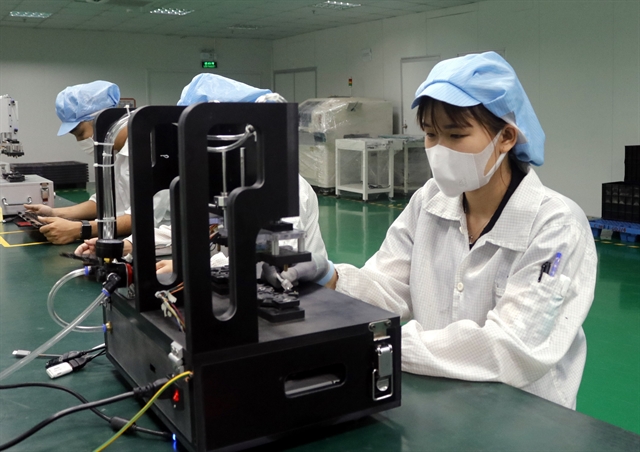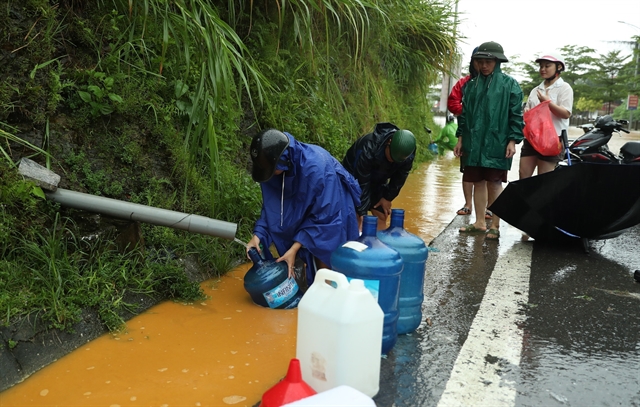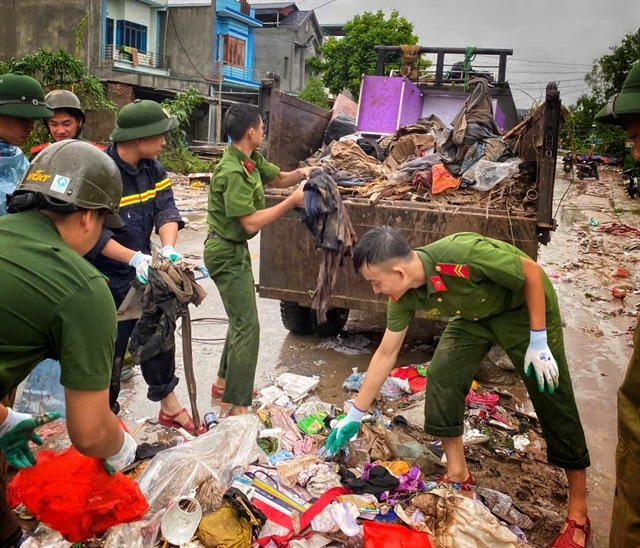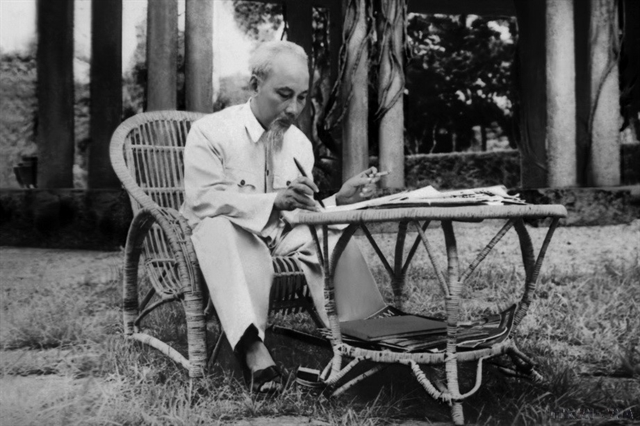 Economy
Economy

 |
| People in Lào Cai City struggle to get clean water flowing from the mountain stream after Typhoon Yagi. — VNA/VNS Photo Quốc Khánh |
HÀ NỘI — Typhoon Yagi has caused serious damage in many northern provinces and cities. Along with the Government, localities have been making every effort to rescue people and property and overcome the storm's consequences to quickly stabilise people's lives.
Medical recovery
Lào Cai Province suffered great damage to both people and infrastructure after Typhoon Yagi.
The entire political system, including the health sector, is struggling to cure patients and clean up the environment in localities that experienced severe flooding.
As of 2pm on Thursday, the Lào Cai Department of Health has recorded two cases of medical staff who died or were injured in the typhoon.
Thào Seo Pao, 42, deputy head of the Tả Củ Tỷ Commune Medical Station in Bắc Hà District, tragically lost his life in the floods.
At around 5.30pm on Monday, he was swept away by water on his way home from work. The authorities found his body and handed it over to his family for funeral arrangements.
Meanwhile Đỗ Văn Triển, 48, a medical station worker, was injured in the storm.
Damage to facilities at medical stations was also quite severe.
Thirteen medical stations and three hospitals in Lào Cai were affected, facing difficulties in examining and treating people.
On Monday night, the Bảo Yên District General Hospital was inundated by floodwater about one metre deep.
But despite these obstacles, authorities continue to actively rescue patients.
As of noon on Thursday, medical facilities in the province had registered 128 injured people. Of these, 40 people came from Bắc Hà District.
The provincial general hospital has directed specialised wards including emergency, intensive care and surgery to fully prepare equipment and medicine – as well as dedicate their workforce – to cure patients.
In addition, the hospital is working to ensure that the telemedicine line maintains a good connection with central hospitals to promptly consult and support treatment through the remote medical examination and treatment system.
Chairman of the Lào Cai Province People's Committee Trịnh Xuân Trường on Thursday asked the Department of Health to monitor the population for infectious diseases that could occur after the typhoon, such as diarrhea, pink eye, respiratory infections, athlete's foot, flu and dengue fever.
The health department needs to be particularly on guard against digestive diseases such as diarrhea, cholera, dysentery and typhoid.
The department has requested the Ministry of Health to support an additional 2,700kg of environmental disinfectant chemicals Cloramin B and 1,000,000 tablets to disinfect drinking water.
As of Thursday, about 15,800 households in the province had been affected by Typhoon Yagi.
Lào Cai has deployed disinfection spraying in schools, markets, households and flooded areas.
Currently, units are actively implementing environmental sanitation work to ensure that no epidemics arise after the typhoon.
Waste treatment
 |
| Sơn Động District Police help people collect trash and clean up the environment after the flood receded. — VNA/VNS Photo Danh Lam |
Deputy Chairman of the Bắc Giang Province People’s Committee Lê Ô Pích said that in the days to come, the province will focus on collecting and treating waste.
To ensure a green, clean and beautiful environment, Bắc Giang will continue to maintain environmental sanitation, collect and treat waste.
The province is calling for active participation of political and social organisations as well as local residents in the cleanup.
Districts will invest in specialised garbage transport vehicles for waste collection that are suitable for local routes, optimising transportation of waste in the area.
Bắc Giang also plans to upgrade the existing waste treatment areas, speeding up investment and construction to rapidly open centralised waste treatment plants for public use in Việt Yên Town, Bắc Giang City and Lục Nam District.
Currently, the total volume of waste generated in the province is 965.5 tonnes per day.
The province has established 171 companies, cooperatives and environmental sanitation teams specialising in collecting, transporting and treating waste.
Localities arranged more than 1,100 waste collection points in the area's communes and villages. — VNS




